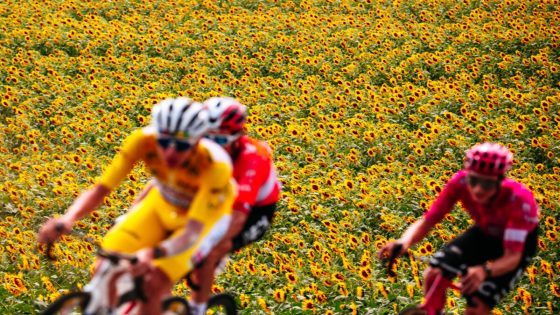In the world of cycling, the modern Tour de France has sparked a high-carb revolution, transforming how athletes fuel their performance. As of 2025-07-21 11:07:00, elite riders like Tadej Pogačar consume around 120 grams of carbohydrates per hour, a significant increase compared to previous years.
- 120 grams of carbs fuels modern cyclists.
- Individualized fueling strategies are crucial.
- Overfueling can cause gastrointestinal distress.
- High-carb intake aids recovery and performance.
- Gut training helps optimize carbohydrate absorption.
- Most amateurs underconsume during rides.
This shift in nutrition strategy is reshaping the dynamics of competitive cycling, making races faster and more aggressive than ever. But should everyday cyclists adopt this high-carb approach?
Many amateur cyclists wonder if they should mimic the elite’s fueling strategies. However, the reality is nuanced; not every rider can tolerate such high carbohydrate intake. Key points include:
- Individual fueling needs vary greatly among cyclists.
- Proper nutrition can enhance performance for both pros and amateurs.
- High-carb strategies require careful planning and adaptation.
- Overconsumption may lead to gastrointestinal issues, negating benefits.
Looking ahead, cyclists should consider personalized nutrition plans to optimize their performance, ensuring they find the right balance that works for them.

































